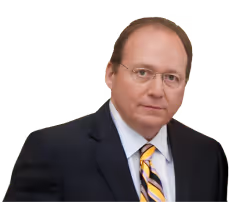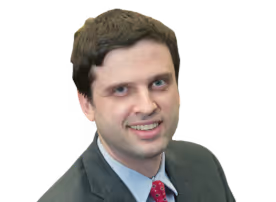Tesla’s Autopilot System: A Deadly Pattern of Driver Confusion and System Failures
Tesla’s Autopilot and Full Self-Driving (FSD) systems have been central to a growing number of injury and fatal accident claims across the United States. While Tesla continues to advertise its vehicles as containing revolutionary driver-assistance technology, mounting evidence shows that these systems may not perform safely in real-world driving conditions. As of late 2024, at least 51 deaths have been officially linked to Autopilot-involved crashes, with hundreds of additional nonfatal incidents documented by federal agencies such as the National Highway Traffic Safety Administration (NHTSA).
What sets Tesla’s ADAS (Advanced Driver Assistance System) apart from other brands is not only the aggressive marketing but the overreliance that drivers place on its capabilities—often believing the car can fully operate itself without supervision. Unfortunately, real-world crashes have revealed that Tesla’s system can fail to recognize other vehicles, misinterpret obstacles, or fail to respond in time to prevent a crash. In many cases, drivers involved in accidents were not warned of these limitations and believed the car was safer than it truly was.
These system failures have caused devastating injuries and deaths. Families left grieving or injured individuals now face complex legal issues as they attempt to hold Tesla accountable for what they argue are dangerous design flaws, misleading advertising practices, and ineffective software fixes.
Autopilot Crashes Continue Despite Recalls and Software Updates
After years of investigation, Tesla issued a wide-reaching recall of all vehicles equipped with Autopilot in December 2023. The company claimed it could resolve safety issues via a remote software update. However, federal authorities remain skeptical about the effectiveness of that fix.
The National Highway Traffic Safety Administration closed its initial investigation in April 2024—but almost immediately opened a new recall query to determine whether the patch was working. Unfortunately, accident reports since that time suggest the problems persist.
Notable post-recall crashes include:
- April 10, 2024: A Tesla operating under Full Self-Driving hit an SUV at an intersection near Las Vegas. The Tesla failed to slow or respond, endangering both the Uber passenger and the other vehicle’s occupants.
- June 13, 2024: In Fullerton, California, a Tesla driver crashed into a parked police vehicle—despite traffic flares and emergency lights being visible. The driver admitted to using the “self-drive” function and being distracted by his phone.
These tragic events show that despite Tesla’s claims, its vehicles can still place lives in danger when drivers rely on Autopilot or FSD systems. Legal action may be the only path to accountability.
Allegations of Consumer Deception and Dangerous Marketing
Some of the strongest legal arguments against Tesla stem from how the company promotes its vehicles. Tesla’s branding of its software as “Autopilot” and “Full Self-Driving” has led many consumers to believe that their vehicles are capable of complete autonomous operation—without human intervention. However, the vehicles still require constant supervision, and the system is not equivalent to actual autonomous driving.
In October 2024, a wrongful death lawsuit filed in Contra Costa County, California, brought attention to this issue. The surviving family of a man killed while using Autopilot argued that he had been misled by Tesla’s advertising. The lawsuit cited numerous statements from Tesla and Elon Musk on social media and blog posts claiming the technology could “drive itself” or was safer than human drivers.
The claim states that the driver relied on these statements and believed he could trust the system to navigate public highways without his active involvement. Sadly, this reliance led to his death—something his family believes could have been prevented if Tesla had been more transparent.
These lawsuits raise important questions:
- Did Tesla mislead drivers about what Autopilot can safely do?
- Should the company have more clearly warned consumers about the system’s limitations?
- Were over-the-air software updates a sufficient response to known safety hazards?
Understanding the Legal Grounds for a Tesla Autopilot Lawsuit
Legal claims against Tesla can be based on multiple areas of law, depending on the circumstances of the crash:
- Product Liability: Plaintiffs may argue that the Autopilot or Full Self-Driving system was defectively designed, lacked adequate warnings, or failed to perform as reasonably expected under real driving conditions.
- Wrongful Death: In fatal crash cases, surviving family members may file a wrongful death lawsuit seeking compensation for the loss of a loved one due to Tesla’s alleged negligence or deceptive conduct.
- Consumer Fraud or False Advertising: Victims may claim that Tesla misrepresented the capabilities of its vehicles in a way that misled them into using dangerous features with misplaced confidence.
These lawsuits often involve large volumes of evidence, including vehicle data logs, marketing materials, internal corporate communications, and engineering documentation. Litigation may also require expert testimony regarding software performance, accident reconstruction, and driver behavior under human-machine interface systems.
Working with an experienced national civil litigation law firm is essential. These cases can take on the world’s most valuable automaker and require the legal and financial resources to pursue justice against a company like Tesla.
Who Can File a Lawsuit Against Tesla?
If you or a loved one was injured—or killed—while riding in a Tesla or struck by a Tesla vehicle using Autopilot or FSD, you may have the right to file a claim. Lawsuits may be available to:
- Passengers in Tesla vehicles involved in an Autopilot-related crash
- Drivers or passengers in other vehicles hit by a Tesla using Autopilot or FSD
- Pedestrians or bicyclists struck by Tesla vehicles
- Surviving family members of victims killed in Tesla Autopilot accidents
The key to a successful lawsuit is showing a direct link between Tesla’s system behavior and the cause of the crash. That’s why it’s vital to preserve evidence, get a prompt case review, and speak to legal counsel as early as possible.
Time is limited. Statutes of limitations vary by state, and valuable evidence like car logs or video data can be lost quickly. Don’t wait to protect your rights.
Contact Parker Waichman LLP For a Free Case Review
If you or someone you care about has been seriously injured or killed in a Tesla Autopilot or Full Self-Driving related crash, you deserve answers and justice. Parker Waichman LLP is a nationally recognized civil litigation law firm that is currently reviewing injury and wrongful death cases linked to Tesla’s advanced driver systems. Our attorneys are investigating claims involving misleading safety claims, failed software systems, and crashes that never should have happened.
We offer a free legal consultation to help you understand your rights. Call us today at 1-800-YOUR-LAWYER (1-800-968-7529) to speak confidentially with a lawyer. Time is limited—take action now.


































